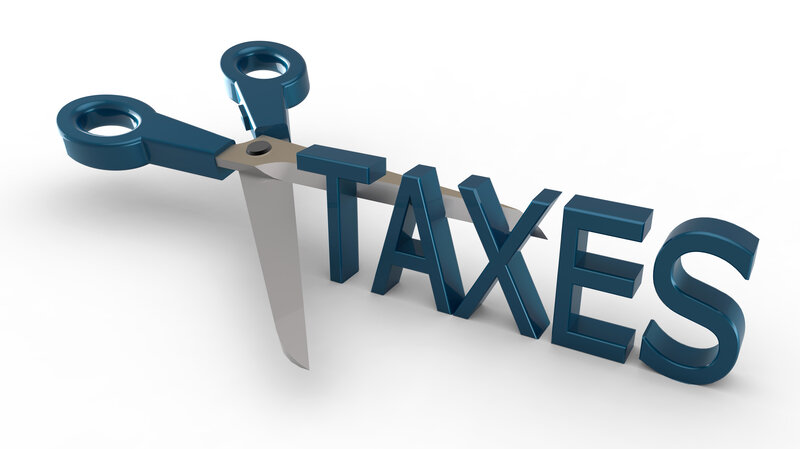Avoid Tax Problems When Selling Your Home in Maryland

Introduction
When searching for “Avoid Tax Problems When Selling Your Home in Maryland,” the user is likely feeling a mix of concern and urgency. Selling a house is already a stressful process, but when tax issues are involved, it adds an additional layer of complexity. They may be worried about the potential tax consequences of the sale, including capital gains taxes, property taxes, and the overall impact on their financial situation. They might also be facing pressure to sell quickly due to personal circumstances like foreclosure, divorce, or a financial emergency.
This person is likely looking for practical advice on how to avoid or minimize tax liabilities while selling their home. They want clear, actionable guidance on what they need to do to ensure that the sale of their home doesn’t create a financial burden or result in unexpected tax problems. At the same time, they may be exploring options to sell their home fast, perhaps to a house buying company or investor, to avoid dealing with a lengthy and complicated sale process that could exacerbate their financial stress.
This blog post will provide the critical information they need to navigate tax issues in a real estate transaction and highlight why selling a home as-is to a house buying company or investor might be a smart solution. By addressing both the tax concerns and the benefits of working with investors, the blog will offer valuable insights into how sellers can protect themselves financially while selling their home quickly.
How Tax Problems Can Affect the Sale of Your Home in Maryland
When selling your home in Maryland, one of the key concerns that can arise is the tax implications of the sale. Many homeowners don’t realize that selling a property can result in a significant tax burden, especially if they are unaware of the different tax rules that apply to real estate transactions. If you’re dealing with tax problems—such as overdue property taxes, capital gains, or inheritance taxes—the sale of your home may not be as straightforward as you’d hoped.
Understanding how taxes will affect your home sale is crucial, as it can help you plan accordingly and avoid unexpected financial surprises. For instance, property taxes in Maryland can be substantial, and any unpaid taxes could lead to a lien on your home, complicating the selling process. Additionally, the state has its own rules when it comes to capital gains tax on the sale of real estate, which can differ from federal tax laws.
Capital Gains Tax Considerations
Capital gains tax is one of the most common tax issues that homeowners face when selling a property. In Maryland, you may be subject to both federal and state capital gains taxes if the sale of your home results in a profit. If the home is not your primary residence, you may be taxed on the full amount of the profit. However, if the home is your primary residence and you’ve lived in it for at least two of the past five years, you may be eligible for an exclusion of up to $250,000 ($500,000 for married couples) in capital gains. But if you’ve owned the property for less time or if you’ve rented it out, the tax bill could be significantly higher.
It’s important to have a clear understanding of how your home’s sale will impact your tax situation. If you’re unsure, consulting a tax professional can help you understand the full extent of your tax liabilities. For detailed information on capital gains tax, you can refer to the IRS guidelines on Capital Gains Tax.
Unpaid Property Taxes: How They Can Affect Your Home Sale
Unpaid property taxes are another significant concern when selling your home in Maryland. If you’ve fallen behind on your property tax payments, the county could place a lien on your property. This means that when you sell your home, the unpaid taxes will need to be settled before you can complete the sale. If you don’t pay off the lien, the county could seize your property, further complicating the sale.
As you navigate the selling process, it’s essential to account for any outstanding property taxes. You’ll want to ensure that these are paid off before closing to avoid delays in the sale. Unfortunately, many homeowners may not have the funds readily available to cover these outstanding taxes. This is where working with a cash home buyer can be beneficial, as they may be willing to purchase the property “as-is,” even if there are unpaid taxes.
What Happens if You Sell Without Paying Property Taxes?
If you attempt to sell your home without addressing unpaid property taxes, the sale could fall through. Buyers will typically require proof that all tax obligations have been met before they finalize the purchase. However, a house buying company or an investor that specializes in “as-is” homes may be more flexible in terms of taking on the responsibility for unpaid property taxes. This could save you the hassle of having to pay off the outstanding balance before selling.
Additionally, selling to a cash buyer can help you avoid the lengthy process of dealing with banks and other third parties, especially if you’re struggling with tax issues. This approach can speed up the sale and allow you to move on from your tax burdens more quickly.
To learn more about how selling your home for cash can help resolve tax issues, read our page on Selling a Home With Tax Issues for Cash.
How to Avoid Capital Gains Taxes When Selling Your Maryland Home
If you’ve owned your home for several years and it has appreciated in value, you may be concerned about the capital gains tax on the sale of your property. This tax is assessed on the difference between the sale price and your home’s purchase price. If you sell your home for more than you paid, the gain is taxable.
Tax Exemptions for Primary Residences
The good news is that there are exemptions available if the home you’re selling is your primary residence. As mentioned earlier, if you’ve lived in the home for at least two of the past five years, you could exclude up to $250,000 in capital gains from taxation ($500,000 for married couples). However, there are several factors that could affect your eligibility for this exclusion, including whether you’ve rented out part of the property or if the home was inherited.
The Impact of Selling an Investment Property
If you’re selling an investment property or a second home, you may not be eligible for this exclusion, which means that your capital gains taxes could be significantly higher. In some cases, the tax liability could make selling the property a less attractive option.
To avoid paying capital gains tax, one strategy that some homeowners use is to sell their property to an investor or a house buying company. These buyers often purchase properties for cash, and they may be able to work with you to structure a deal that minimizes your tax liability.
If you’re unsure about your specific situation, consulting with a tax professional can help you determine whether you qualify for any exemptions and what your potential tax bill might be.
How Selling Your Home As-Is Can Help Avoid Additional Costs and Taxes
Selling your home as-is can be one of the most effective ways to minimize costs and avoid further complications when dealing with tax issues. When you sell your home as-is, you’re not responsible for making repairs or improvements, which can be costly and time-consuming. This is especially important if your home has deferred maintenance, which could lower its value and create additional challenges when it comes to taxes.
The Financial Benefits of Selling As-Is
One of the primary advantages of selling as-is is that it can help you avoid the expense of repairs, which might otherwise eat into your profits or increase your tax burden. For instance, you could avoid paying for major home repairs or renovations that might be required to make the house sellable to a traditional buyer.
Additionally, selling as-is can help you expedite the sale, which is essential if you need to sell quickly due to tax issues. By working with a cash home buyer, you can avoid the traditional home-selling process, including costly real estate commissions, inspection fees, and appraisals. This allows you to keep more of the sale price and potentially reduce your tax obligations.
For more on selling your home as-is and understanding the pros and cons, check out Bankrate’s Guide on Selling a Home As-Is.
Why Selling to a House Buying Company May Be Your Best Option
If you’re dealing with tax issues and need to sell your home fast, working with a house buying company near you might be your best option. These companies specialize in buying homes for cash, often in as-is condition. This means you won’t have to worry about repairs, inspections, or costly closing fees.
Speed and Convenience
One of the most significant benefits of selling to a house buying company is the speed of the process. Traditional home sales can take months, but selling to an investor can close in as little as a week or two. This can be a huge advantage if you’re facing urgent financial issues, such as back taxes or foreclosure. Furthermore, by selling directly to an investor, you can avoid the delays that come with dealing with realtors, banks, and potential buyers who may back out of the deal.
Fewer Costs, Less Hassle
When you sell your house to a cash buyer, you won’t have to worry about paying realtor commissions, closing costs, or making costly repairs. This can make the entire process smoother and more profitable, especially if you’re trying to avoid tax issues that could arise from a prolonged sale.
Conclusion: Why It May Be Better to Sell Your Home for Cash with Local Home Buyer
If you’re facing tax problems while selling your home in Maryland, it’s essential to consider all available options carefully. Although you could list your home with a realtor and hope for a quick sale, this process often comes with added risks, including potential tax liabilities and the uncertainties of waiting for a buyer.
Selling your home as-is to a cash buyer through Local Home Buyer can help you avoid these complications. By working with Local Home Buyer, you can sell your home quickly, without the hassle of repairs or inspections, and potentially reduce your tax burden. Our team is experienced in helping homeowners who are dealing with tax issues, and we offer a smooth and straightforward process that allows you to sell your house without the stress and delays of traditional methods.
If you’re ready to sell your home fast and avoid the potential tax pitfalls, Local Home Buyer is here to help. With our cash offer approach, you can avoid the lengthy wait and costly fees typically involved in traditional home sales, putting you in a better financial position sooner.
Get in touch with Local Home Buyer today, and let us help you navigate the complexities of selling your home in Maryland with tax issues.
